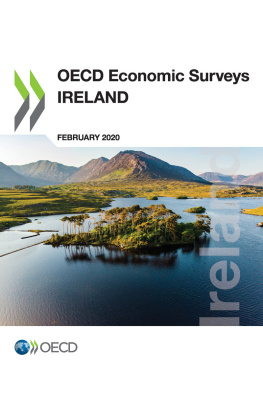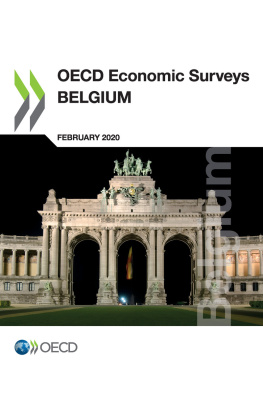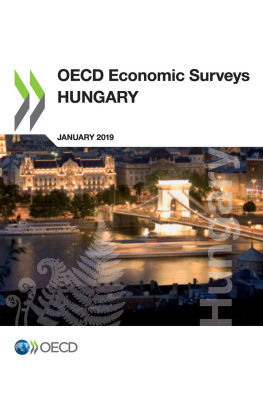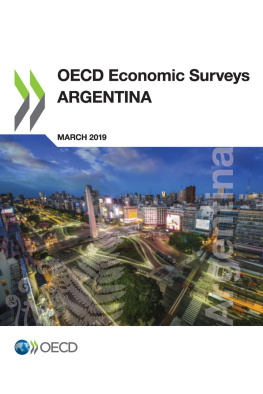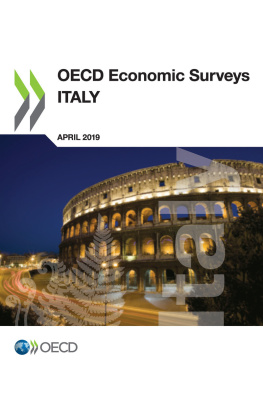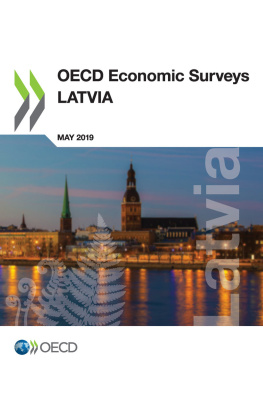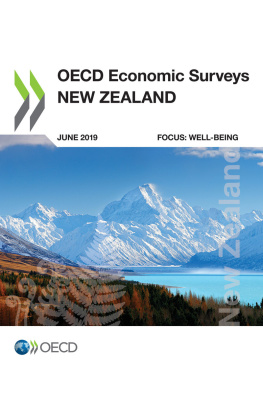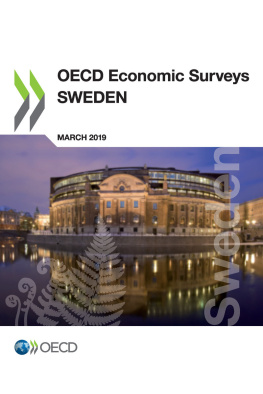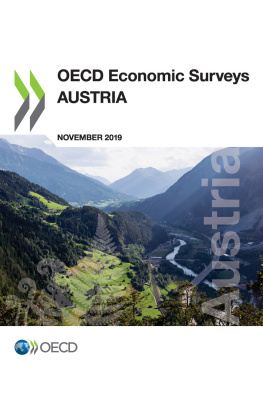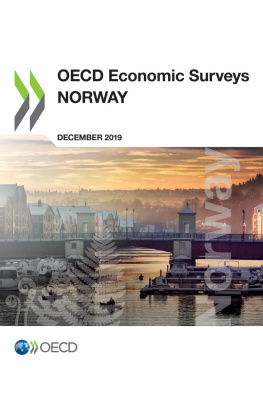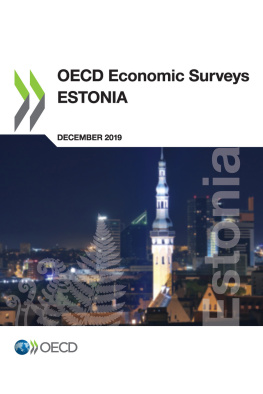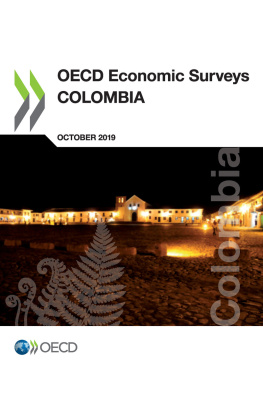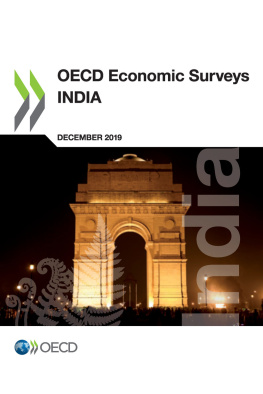OECD - OECD Economic Surveys: Ireland 2020
Here you can read online OECD - OECD Economic Surveys: Ireland 2020 full text of the book (entire story) in english for free. Download pdf and epub, get meaning, cover and reviews about this ebook. year: 2020, publisher: OECD Publishing, genre: Politics. Description of the work, (preface) as well as reviews are available. Best literature library LitArk.com created for fans of good reading and offers a wide selection of genres:
Romance novel
Science fiction
Adventure
Detective
Science
History
Home and family
Prose
Art
Politics
Computer
Non-fiction
Religion
Business
Children
Humor
Choose a favorite category and find really read worthwhile books. Enjoy immersion in the world of imagination, feel the emotions of the characters or learn something new for yourself, make an fascinating discovery.
OECD Economic Surveys: Ireland 2020: summary, description and annotation
We offer to read an annotation, description, summary or preface (depends on what the author of the book "OECD Economic Surveys: Ireland 2020" wrote himself). If you haven't found the necessary information about the book — write in the comments, we will try to find it.
OECD: author's other books
Who wrote OECD Economic Surveys: Ireland 2020? Find out the surname, the name of the author of the book and a list of all author's works by series.
OECD Economic Surveys: Ireland 2020 — read online for free the complete book (whole text) full work
Below is the text of the book, divided by pages. System saving the place of the last page read, allows you to conveniently read the book "OECD Economic Surveys: Ireland 2020" online for free, without having to search again every time where you left off. Put a bookmark, and you can go to the page where you finished reading at any time.
Font size:
Interval:
Bookmark:
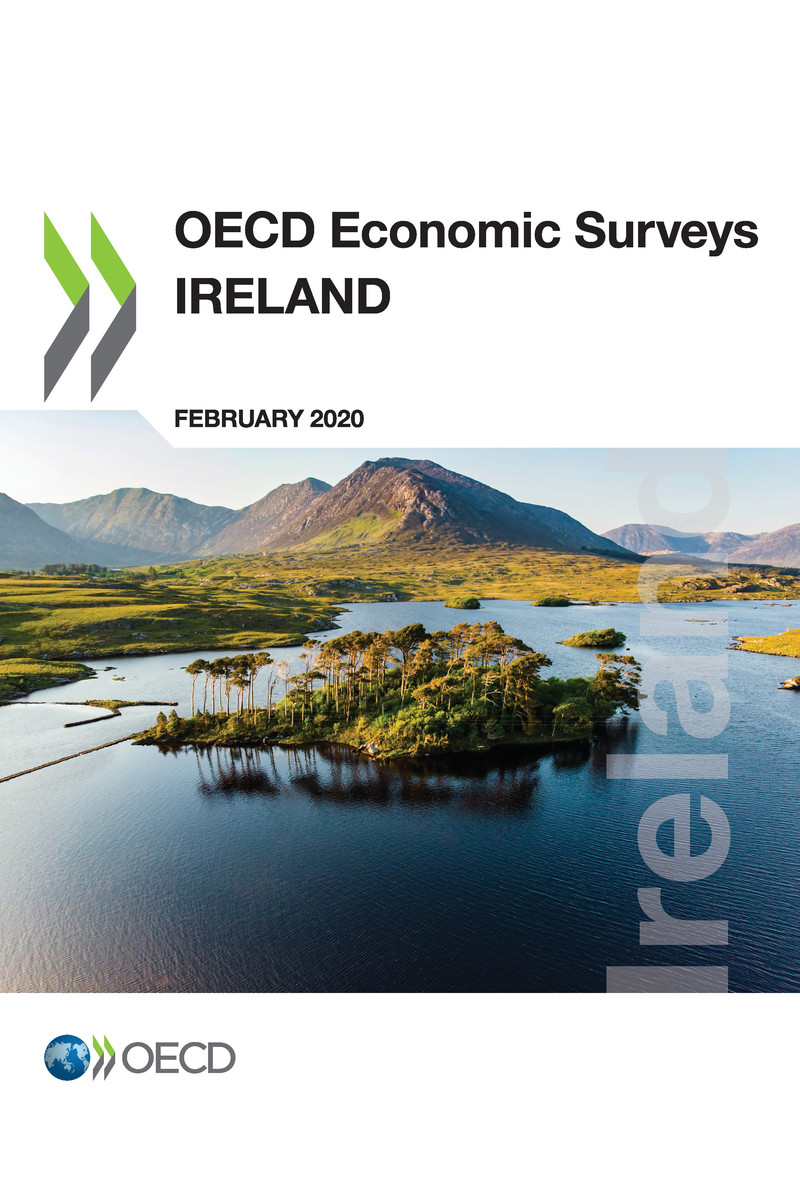
OECD (2020), OECD Economic Surveys: Ireland 2020 , OECD Publishing, Paris, https://doi.org/10.1787/dec600f3-en .
This Survey is published on the responsibility of the Economic and Development Review Committee of the OECD, which is charged with the examination of the economic situation of member countries.
The economic situation and policies of Ireland were reviewed by the Committee on 16 January 2020. The draft report was then revised in light of the discussions and given final approval as the agreed report of the whole Committee on 3 February 2020.
The Secretariats draft report was prepared for the Committee by Ben Westmore and Haruki Seitani, with contributions from Ronan Lyons, Olena Havrylchyk and Andrs Fuentes Hutfilter, under the supervision of Vincent Koen. Research assistance was provided by Lutcia Daniel and editorial support by Sisse Nielsen and Michelle Ortiz.
The previous Survey of Ireland was issued in March 2018.
Information about the latest as well as previous Surveys and more details about how Surveys are prepared is available at www.oecd.org/eco/surveys .
Basic statistics of Ireland, 2018 |
|---|
(Numbers in parentheses refer to the OECD average)* |
 |
Note: The year is indicated in parenthesis if it deviates from the year in the main title of this table. |
* Where the OECD aggregate is not provided in the source database, a simple OECD average of latest available data is calculated where data exist for at least 80% of member countries. |
Source: Calculations based on data extracted from databases of the following organisations: OECD, International Energy Agency, International Labour Organisation, International Monetary Fund, World Bank. |
The Irish economy has been growing strongly. The unemployment rate has plummeted by over 10 percentage points since 2012 to around 5% () and the average real wage well exceeds the OECD average. Moreover, the highly redistributive tax and transfer system has contained income inequality. Air pollution is low and dimensions of wellbeing such as perceived personal safety and community engagement are high.

Source: OECD, OECD Economic Outlook database. MNE stands for multinational enterprises.
StatLink https://doi.org/10.1787/888934078984
Household consumption has grown steadily, but uncertainty has affected business investment. Job creation and wage gains have encouraged labour market participation. Even so, increased household income has been partly channelled to savings, amid weaker consumer confidence. The prospect of the United Kingdoms departure from the European Union (Brexit) and the broader slowdown in major trading partners have held back investment. Although housing construction has forged ahead in the face of a dwelling shortfall, spending on non-aircraft machinery and equipment and intangible assets has stagnated since 2015.
Exports have supported the domestic economy. Services exports have been particularly strong but Brexit uncertainty appears to have weighed on sales of chemicals, tourism and some capital goods to the United Kingdom.
Growth will moderate over the next two years , in the context of capacity constraints and weaker external conditions. The unemployment rate will decline more slowly, but to historically very low levels (). Labour market tightening will stoke wage pressures, especially in those sectors where labour shortages are most acute.
Table 1. Economic growth will moderate | |||
|---|---|---|---|
2019 | 2020 | 2021 | |
Real GDP | 6.2 | 3.6 | 3.3 |
Gross value added (exc. MNE sectors) | 4.8 | 3.5 | 3.4 |
Unemployment rate | 5.0 | 4.8 | 4.7 |
Core inflation | 0.9 | 1.3 | 1.8 |
Source: OECD. Based on the assumption of an orderly Brexit process. |
Economic uncertainty will remain very high. Downside risks include an increase in barriers to trade between the United Kingdom and the European Union following the transition period, which could hobble trade activity between Ireland, the United Kingdom and the European Union, undermining domestic consumer and business confidence. Notwithstanding some decoupling in recent years, the United Kingdom remains a key trading partner for Ireland, particularly in the agriculture and food sectors. The nature of the trading arrangement eventually agreed will be an important determinant of Irish economic prospects over the next few years.
Increased protectionism, more generally, would hurt the very open economy. The impact of a negative shock could be exacerbated by high household debt and weak bank profitability, as well as still high general government debt.
The stock of non-performing loans on bank balance sheets remains high. A large share of those that remain stems from long-term owner-occupier housing arrears. These will be difficult to resolve, partly due to slow repossession proceedings, but may be sped up through granting lenders a collateral possession order at a future date.
Font size:
Interval:
Bookmark:
Similar books «OECD Economic Surveys: Ireland 2020»
Look at similar books to OECD Economic Surveys: Ireland 2020. We have selected literature similar in name and meaning in the hope of providing readers with more options to find new, interesting, not yet read works.
Discussion, reviews of the book OECD Economic Surveys: Ireland 2020 and just readers' own opinions. Leave your comments, write what you think about the work, its meaning or the main characters. Specify what exactly you liked and what you didn't like, and why you think so.

